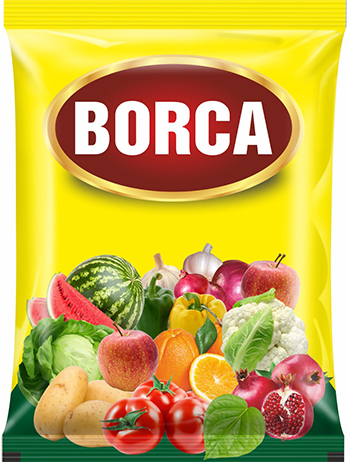How to Improve Soil Naturally

Introduction
Healthy soil is the foundation of successful farming and gardening. It determines how well plants grow, how much yield farmers get, and even how nutritious the produce will be. Over time, however, soil can lose its fertility due to over-cultivation, excessive use of chemical fertilizers, erosion, or depletion of organic matter. This is why farmers and gardeners are now looking for eco-friendly ways to improve soil naturally rather than relying solely on synthetic solutions.
When you improve soil naturally, you restore its structure, increase its ability to retain moisture, and enrich it with essential nutrients. Natural soil improvement not only boosts crop productivity but also supports long-term sustainability. Unlike chemicals that may harm the environment and beneficial organisms, natural methods build a living soil full of microbes, earthworms, and organic matter. These elements work together to keep the soil fertile and balanced for years to come.
Some effective natural practices include adding organic compost, applying green manure, using bio-fertilizers, and adopting crop rotation. These methods replenish nutrients, enhance microbial activity, and improve soil texture without harming the ecosystem. Natural soil conditioners such as compost manure, vermicompost, or plant residues also help in reducing dependency on costly external inputs.
In addition, improving soil naturally plays a crucial role in tackling climate challenges. Practices like mulching and cover cropping not only enrich the soil but also conserve water and reduce erosion. For small farmers and home gardeners alike, these eco-friendly techniques offer a cost-effective and sustainable way to maintain soil health.
By choosing to improve soil naturally, we invest in healthier crops, safer food, and a greener environment. It is a step towards sustainable agriculture that benefits both present and future generations.
10 Practical Ways to Improve Soil Naturally
- Add Organic Compost
Compost is one of the most effective ways to improve soil naturally. Made from decomposed kitchen waste, leaves, and plant matter, it enriches the soil with organic carbon, improves texture, and boosts microbial life. - Use Green Manure
Growing leguminous plants like clover, cowpea, or sunhemp and then plowing them back into the soil adds nitrogen and organic matter. Green manure improves fertility, prevents erosion, and enhances soil aeration. - Apply Vermicompost
Earthworms break down organic waste into nutrient-rich vermicompost, which enhances soil structure and boosts microbial activity. It improves water retention and provides essential micronutrients. - Crop Rotation
Rotating crops, especially legumes with cereals, helps balance nutrient use and replenishment. For example, planting beans after maize restores nitrogen to the soil naturally. - Mulching
Covering soil with straw, leaves, or crop residues protects it from erosion, reduces water loss, and slowly decomposes to add organic matter. Mulching also suppresses weeds naturally. - Use Bio-fertilizers
Beneficial microbes like Rhizobium, Azotobacter, and mycorrhizal fungi naturally fix nitrogen, solubilize phosphorus, and improve nutrient availability. These bio-fertilizers help build living, fertile soil. - Incorporate Animal Manure
Well-decomposed cow dung, goat manure, or poultry litter provides a balanced mix of nutrients. It enhances soil fertility, improves water retention, and increases microbial diversity. - Practice Cover Cropping
Planting cover crops such as mustard, alfalfa, or ryegrass during off-seasons prevents soil erosion, suppresses weeds, and adds biomass when incorporated into the soil. - Reduce Tillage
Excessive tilling disrupts soil structure and kills beneficial organisms. Minimal tillage preserves organic matter, protects microbes, and maintains natural soil fertility. - Add Natural Soil Conditioners
Materials like bone meal, neem cake, and wood ash provide essential minerals and improve soil pH balance. These natural conditioners enhance soil quality over time without harming the environment.
By adopting these methods, farmers and gardeners can improve soil naturally without depending heavily on chemicals. These eco-friendly practices not only enhance soil fertility but also ensure healthier crops, higher yields, and long-term sustainability. Natural soil improvement is the key to building resilient farmlands and gardens that thrive season after season.
Conclusion
Improving soil naturally is the cornerstone of sustainable farming and healthy crop production. By adopting eco-friendly practices such as composting, green manure, vermicomposting, and using bio-fertilizers, farmers and gardeners can enhance soil fertility, retain moisture, and promote robust plant growth. These natural methods not only boost yield but also protect the environment and ensure long-term productivity.
For those looking for reliable solutions to improve soil naturally and maximize crop health, Indochemagrovet offers a wide range of high-quality organic fertilizers and soil enhancers. Products like Fortis, Bhupushti, Borca, Oreo, and Natura Power are specially designed to nourish your soil and plants sustainably.
Take the first step towards healthier soil and higher yields today! Visit Indochemagrovet or contact us at +91 9830 720311 / 83369-77770.
Mumbai: Parewala House No.4, Vakola, Santacruz (East), 400055
Kolkata: Block – DD, House no-197, 1st Floor, Street no-295, Action Area-1, New Town, 700156

